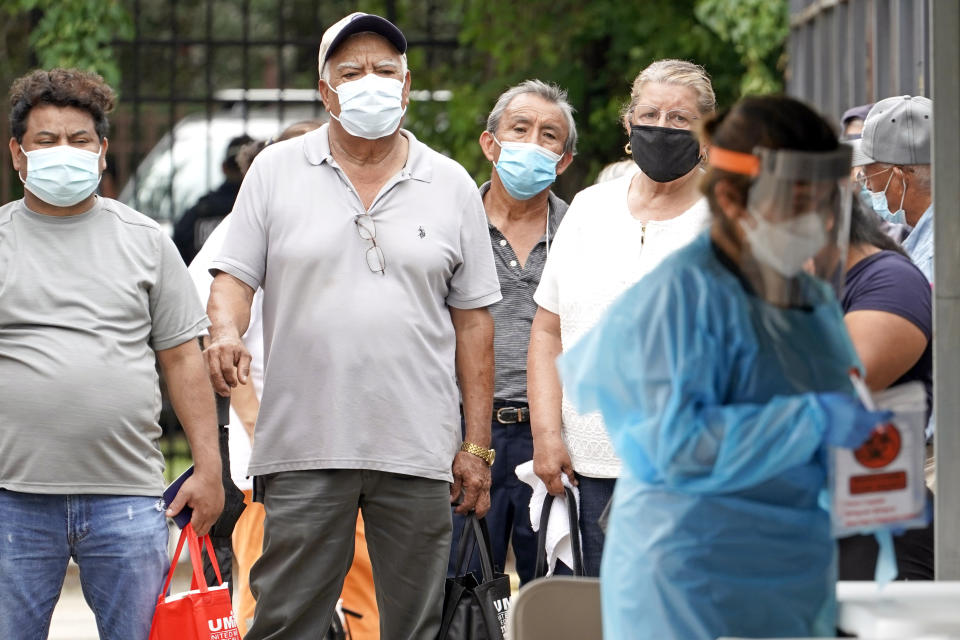America’s divisiveness will 'make it a lot harder on the working class': Ian Bremmer
The U.S. presidential election exposed deep divisions among voters, on the issues of the economy, coronavirus, and social justice. Now, that division is likely to weigh on the working class, as a new wave of coronavirus cases threatens to slow the economic recovery.
Speaking to Yahoo Finance Live on Thursday before the election was called for Joe Biden, Eurasia Group founder and President Ian Bremmer said a divided electorate coupled with a divided Congress will make the passage of additional fiscal relief an uphill battle.
“I think it's going to make it a lot harder for the working class for those who have been furloughed and those furloughs are being made permanent, because the amount of stimulus that will be on offer, will be so much less,” he said. “There's the ability to start to bring red and blue together, but that's not what we just saw.”
More than three months after the expiration of federal enhanced unemployment benefits, Congress remains at a stalemate over a coronavirus stimulus package, even as more than 20 million Americans remain unemployed. And recent data suggests the pace of the economic recovery is slowing.
The Labor Department’s monthly jobs report Friday showed, that 638,000 jobs were added in the month of October, down from 661,000 in the previous month. Private payrolls slowed to 365,000 jobs in October, well below the 600,000 estimate.
But reaching a compromise on a larger fiscal stimulus appears unlikely, with an increasingly divided Congress. Democratic lawmakers, who pinned their hopes for a “blue wave” in Tuesday’s election, faced a stunning disappointment, after the party lost more than half a dozen seats in the House of Representatives as of Friday. They failed to re-take the majority in the Senate as of Friday.
The results came as the U.S. reported a record 100,000 new coronavirus cases in a single day Thursday, for the first time since the pandemic began.
Bad for a lot of Americans
“In Europe, you have pretty much the same coronavirus crisis. The case levels in hospitalizations are higher right now per capita than the United States. But in Europe, unlike in 2008 or 2010, they are responding to this crisis, collectively,” Bremmer said. “In fact, 27 European countries voted unanimously for a massive relief package that will take money from the wealthy countries and send it to the poorest countries, and that will actually start to address the kind of issues in Europe that... [would help] people that otherwise would be hardest hit by this crisis.”

The lack of fiscal relief threatens to push millions of Americans into poverty. Still, the U.S. electorate remains fundamentally divided on how to pursue financial and economic reforms and tackle the public health crisis. Exit polls from Tuesday showed the opinions differed right along political fault lines, with 51% of the voters, saying it was more important to contain the coronavirus now, even if it hurts the economy, according to Edison Research for the National Election Pool. Forty-two percent of voters said rebuilding the economy should be a priority, even if it hurts efforts to contain the virus.
“The fact is that 2008 feels quaint,” Bremmer said, referring to the Great Financial Crisis. “It's a memory that feels like it's not just from a different time but from a different country... 2021 I think is going to feel very bad for an awful lot of Americans.”
Akiko Fujita is an anchor and reporter for Yahoo Finance. Follow her on Twitter @AkikoFujita
